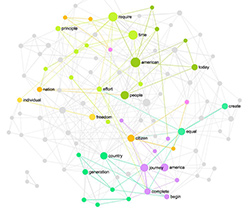Posted by Nodus Labs | May 29, 2012
Influence Dynamics in Social Networks
The framework of networks can be very useful when thinking about social dynamics. The people are represented as the nodes and their interactions are the connections between them. Using this model we demonstrate how someone can become influential in a social context in just a few not very obvious steps.

